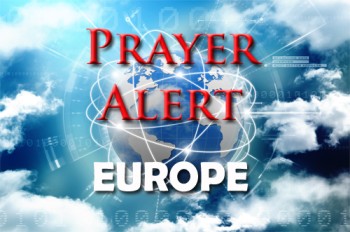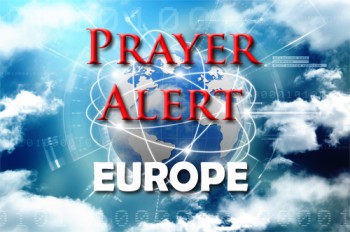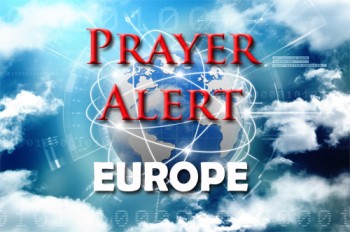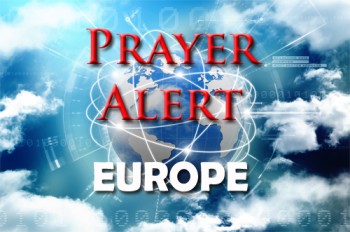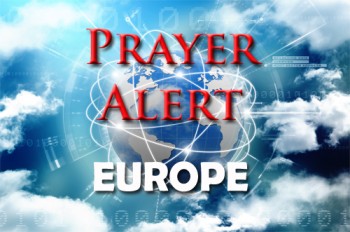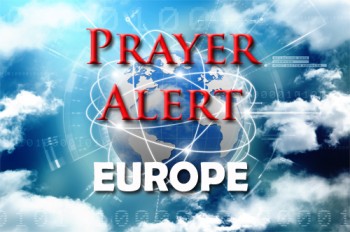Displaying items by tag: European Parliament
Europe: big swing to far-right in EU elections
Following the European Parliament election, the European People's Party (EPP) has secured 184 seats, a quarter of the 720-member chamber. Far-right groups also made significant gains. The centre-left Socialists and Democrats remained stable, but the liberal Renew Europe group suffered significant losses. EPP leader Manfred Weber emphasised the party's alignment with industry, rural areas, and farmers. The party might form a coalition with socialists and liberals or negotiate with right-wing parties without alienating centrists. Far-right parties like France's National Rally and Italy's Brothers of Italy made notable strides, while Spain's Vox party lost ground to a new far-right party. If unified, the far right would be the second-largest force in Parliament. Ursula von der Leyen's re-election prospects as Commissioner are uncertain, as she needs full support from the three centrist groups.
Green MEPs threaten to oppose von der Leyen’s bid for re-election
Green members of the European Parliament will oppose Ursula von der Leyen's bid for a second term as president of the European Commission if she aligns with hard-right nationalists, according to Terry Reintke, German Green MEP chair. Reintke stated that her group would ‘absolutely’ not support von der Leyen if she made a deal with the European Conservatives and Reformists (ECR), which includes Italian prime minister Giorgia Meloni's group. She said that an alliance with the ECR, known for opposing EU green policies, would jeopardise the EU's climate action plans, potentially stalling or halting the Green Deal; this would be disastrous for both the climate and Europe's economic competitiveness against the USA and China. This announcement adds to von der Leyen's challenges, as the centre-left has also pledged not to support her if she collaborates with hard-right parties. To secure a second term, she needs an absolute majority of the 720 MEPs in the new parliament, requiring a broad coalition beyond her centre-right European People’s Party (EPP), which is expected to win around 175 seats.
Czech Republic: EU presidency and asylum relocation
The Czech EU presidency is proposing an annual minimum on the number of asylum seekers EU states are willing to relocate. The idea is part of bigger discussions on solidarity sharing, a concept eluding member states when it comes to EU-wide migration and asylum reforms. A Czech presidency paper is proposing either 5,000 or 10,000 voluntary relocations annually as suggestions to gauge what EU states are willing to accept. That debate feeds into an overhaul of the EU's asylum and migration laws proposed by the 2020 European Commission. The solidarity ideas are among many that have sought to create some sort of balance with what the EU has coined flexible responsibility. It is not immediately clear if EU states will agree to the Czech presidency idea. Should they fall short, it will be up to the next EU presidency under Sweden to try to find a solution.
EU: candidate to succeed Juncker
At the time of writing European leaders are trying to agree on a compromise EU leader after political groups failed to unite behind a candidate to replace Jean-Claude Juncker in Europe’s top job. Following the elections in May, nobody has won united support from the four mainstream parties to become president of the EU’s executive arm. Onlookers are calling it a ‘big fight’ between Europe's political groups, leaders, and institutions. Other vacancies to be filled include speaker of the European parliament, which will sit for the first time on 2 July, and foreign policy chief. The final nominees must have the backing of least 21 of the 28 EU leaders and a majority in the 751-member parliament. National leaders want to control the process and allocate the most senior jobs in a way that balances men and women, east and west, small countries and large.
European parliament elections: Brexit Party
73 MEPs will be elected in the UK on 23 May, and the Conservative party potentially faces an angry backlash from voters. Nigel Farage’s new Brexit Party has more support than the two traditional British parties combined. Britain’s education minister Damian Hinds said that the elections were a second referendum that would be difficult for Conservatives. The latest opinion poll gives the Brexit Party 34% of the vote, yet it was only founded in April. Fourteen of UKIP's seventeen MEPs have defected to it. Nigel Farage said there has been a breakdown of trust between people and politicians, as the two main parties have failed to deliver the result of the Brexit referendum. See
European parliament with anti-European parties
After the Second World War many said, ‘Never again’. For decades extreme nationalism was considered a threat. In 2019 it has re-emerged with European far-right parties forming a new alliance led by US strategist Steve Bannon, wanting to ‘promote’ right-wing populist groups in Europe. Matteo Salvini, Italy’s leader of the extremist League party, has joined ‘The Movement’ and has gathered right-wing Netherlands Party for Freedom, Germany’s AfD, Danish People's Party, the Finns Party and other extremist populist parties to form a new alliance, injecting their rhetoric into the EU; selling themselves as ‘maintaining or protecting their heritage and their people (they warn that refugees, Muslims, empowered women, and the EU bring unwanted change, which is a bad thing). A YouGov survey for voting intentions shows that the European parliament will be significantly different after 25 May with 35% of seats taken by socialists, Greens, the European People’s Party, and other anti-European parties. See
Italy: using 'yellow vests' to shake up EU
Italy’s Five Star Movement is plotting with similar groups in Poland, Croatia, and Finland to shake up the EU and end Brussels control. Luigi di Maio, leader of the anti-establishment party, is meeting with a number of emerging movements across Europe to create a ‘group of direct democracy’ to challenge the ‘current crop of elitist EU parties’. He will also call on the so-called ‘yellow vest’ movement, which has threatened to sink Emmanuel Macron’s reign as French president, to help spearhead the people’s revolution in Brussels, according to Laura Agea, Five Star’s most senior figure in the Belgian capital. She said, ‘Our goal is to be decisive for the next European Parliament. We will focus on direct democracy, the health of citizens, fighting poverty, and defending the excellence of Made in Europe.’
Brussels: European Parliament prayers
Since 2011 intercessors from different backgrounds and nations come into the presence of God in the European Parliament every Friday. Some attend regularly; other individuals or groups join when they can. Every gathering looks different as the Holy Spirit leads. Afterwards they have a sharing time over lunch or coffee. Hundreds of people from across the world have prayed with them inside the EP. All have experienced God intervening in every meeting for every prayer topic. There have been deliverances, healings and visitations of the Holy Spirit. An intercessor writes, ‘We’ve already begun praying for the May 2019 elections for members of the European Parliament; for God to raise up people with godly values to represent the people of Europe. Key people at the top of the list in each political party, who will seek and have the Lord’s favour and grace. We also pray that those who are obstacles will resign or be moved out and for the “unknowns” to come forward.’
